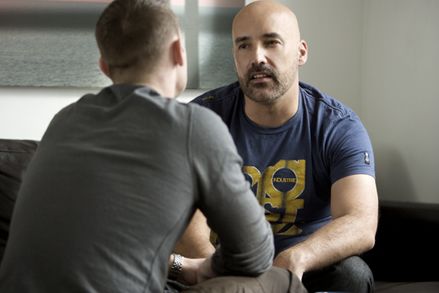
The Disclosure Dilemma
Anonymous or casual sex is a significant part of the lives of many gay men. While having sex without disclosing your HIV status is against the law in some Australian states (see our Law & HIV Transmission page), in practice, disclosure under these circumstances does not always happen.
Fear of HIV and ignorance about how to avoid transmission can lead HIV-negative men to avoid sex and relationships with HIV-positive men. Many positive men have been rejected upon disclosing to potential partners and, in very rare cases, even threatened with violence.
Some men find that meeting guys online avoids a lot of problems. Some guys openly state they are positive, while others do this in a way that most guys online would understand indicates HIV positive status (see our Cruising Online page).
Other men avoid disclosure with casual partners by only having safe sex. That way if anything goes wrong, they have taken steps to protect the other guy. Many men find this the best option in situations where talking isn’t really practical, like at a sauna or sex club.
There is no easy way to disclose your HIV status to your sexual partners, or any guarantee they will respond positively. It helps to think about it in advance and have a plan.
When it comes to relationships, most positive men who choose to disclose early in the relationship find that their partner is supportive. The dilemma is when does a casual partner become a boyfriend? But in the real world, stigma and discrimination against people with HIV can mean that:
Some HIV-negative gay men believe that it is the sole responsibility of gay men with HIV to disclose their status before having sex. There have been successful prosecutions brought against men in Australia for knowingly transmitting HIV. However, there are more personal reasons for disclosing early:
HIV is a fact of life these days, particularly gay men’s lives, and responsibilities in any sexual encounter are always shared responsibilities. So, be bold and remember it’s his problem if he can’t deal with it.


